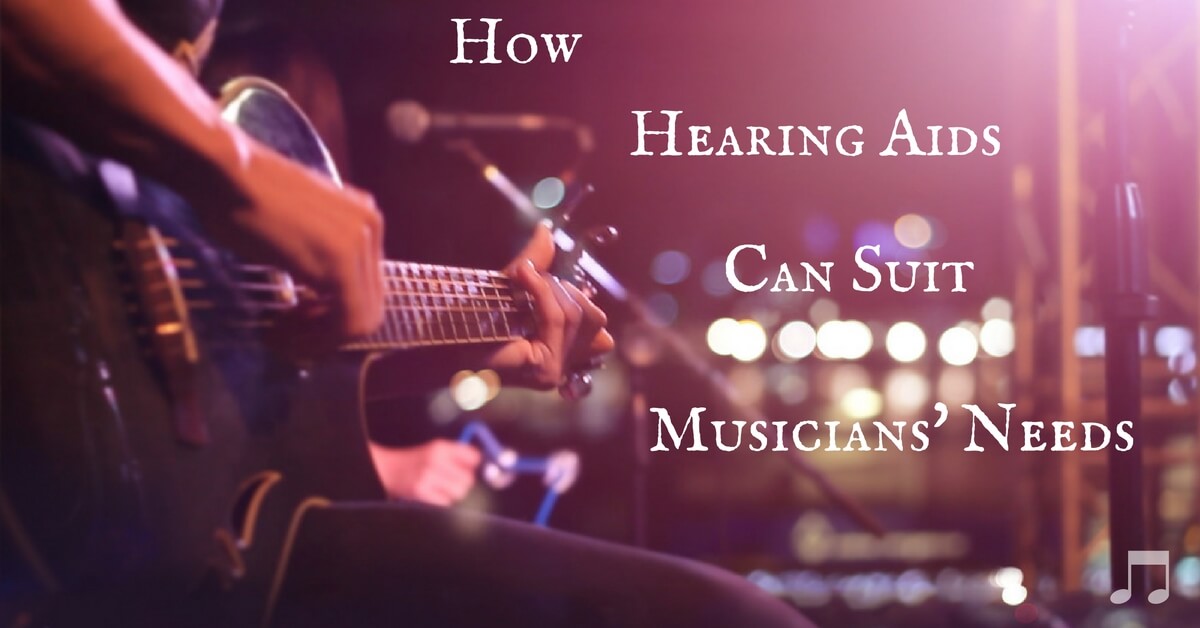All About Bluetooth Hearing Aids
Do you remember the hearing aids your parents or grandparents used to

By: admin | August 5, 2016
In the classic rock song, “Desperado” from the Eagles, there’s the line that goes: “These things that are pleasin’ you can hurt you somehow.”
Well, so it goes with music. Music has the power to transform our emotions, transport us back in time, and completely change the environment of a space. For centuries, we’ve been creating and consuming music, in its many forms and iterations.
Only lately, in the past century, have we begun to understand how music at high volumes could harm our hearing. In recent years, many popular musicians have come forward to discuss their struggles with hearing loss – from Barbra Streisand to The Who’s Pete Townshend to AC/DC’s Brian Johnson.
Back in the 1960s, Townshend reportedly went deaf in one ear after The Who’s drummer, Keith Moon, blew up his drum set on stage. “I have severe hearing damage,” says Townshend. “It has manifested itself as tinnitus, ringing in the ears at frequencies that I play guitar. It hurts, it’s painful, and it’s frustrating.”
For musicians, the ability to hear is crucial to their profession and their passion. Certainly, hearing loss will not stop the most dedicated musician – look at Beethoven! But these days, musicians who experience hearing loss have new technology available to them. Hearing aids designed to address music listening are changing the game for musicians.
Hearing specialists warn that we should not listen to sounds at 85 decibels for longer than one hour.
At an average rock concert, which tends to last over an hour, the levels of music may rise to 120 decibels. At this rate, unprotected ears are subject to permanent hearing damage.
Noise-induced hearing loss occurs when we are exposed to high levels of sound for any period of time. The louder the decibel, the shorter the amount of time exposed will lead to permanent hearing loss.
For many professional musicians, the use of customized in-ear monitors provides protection against these dangerous levels of sound.
Aside from live music, musicians will listen to their tracks over studio headphones or earbuds as they master their records.
In recent years, hearing specialists have warned against prolonged use of earbuds. The proximity of the earbud to the eardrum creates conditions close to being in a coal mine with loud machinery. Earbuds have the potential to do lasting damage to your hearing.
Instead, consider using noise-canceling headphones, as these tend to provide better sound quality. Also, if possible try to curb your music listening to an hour, with volume at 60%.
Even with these preventative measures, hearing loss is a condition that may gradually develop over time. The use of hearing aids treats hearing loss, and they bring life-changing sound quality back to peoples’ lives.
Most hearing aids are traditionally developed to assist with speech recognition and intelligibility. The frequencies of speech are very different than those of music – which is why until recently, hearing aids were not great at providing excellent, high-fidelity sound quality for music.
In recent years, many hearing aid manufacturers have focused on developing new features dedicated to music listening. Musicians (and music lovers!) will find that hearing aids have been designed to provide high quality of sound for various music environments: live music, recorded music, and for performing music.
As a musician, the use of hearing aids takes some time to adjust. However, you’ll find that gradually, your brain will be trained to listen to music again. You’ll also find that the use of hearing aids will help in your performances and while practicing at home. There are even options for in-ear monitors and the use of hearing aids.
If you are musician and you believe you are experiencing a hearing loss, come visit us at Orange County Physicians’ Hearing Services for a hearing consultation.
OC Physicians’ Hearing Services
Locations in Mission Viejo, Irvine, San Clemente, Laguna Beach and Laguna Hills
Call us to schedule: 949- 364-4361

Do you remember the hearing aids your parents or grandparents used to
By: admin | August 7, 2022

Do you ever find yourself at the end of a long day only to be confronted
By: admin | August 7, 2022

How Common is Hearing Loss Many people might be shocked to learn how
By: admin | June 22, 2022
